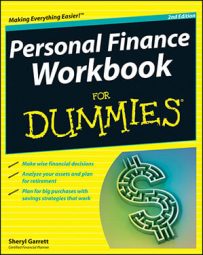 © Giovanni Gagliardi / Unsplash.com
© Giovanni Gagliardi / Unsplash.comHow to wipe out credit card debt
When you’re ready to eliminate your credit card debt, you can take one of two approaches: pay off the card with the highest balance first, which allows you to save on interest in the long-run, or pay off the smallest balance first, which makes you feel good about your progress.
Choose your preferred method and then follow these steps to wipe out your credit card debt:
-
List all your credit card debtors in order of the highest-interest-rate first or the smallest balance first, whichever you feel may be most effective.
-
List the current balances on each of these accounts.
-
List the minimum required monthly payment for each account.
-
Total the minimum required monthly payments.
-
Apply any surplus funds toward your highest-interest-rate debt or the debts with the smallest balances.
Considering your financial future
Managing your personal finances requires a balance between what you need and want today and what you’ll need and want in the future. Always going for instant gratification leads to constant dissatisfaction! Instead, plan ahead by using the following tips:
-
Write down your goals. Be specific and revisit them annually.
-
Save at least the first 10 percent of your income.
-
Set up your savings and investing to occur automatically.
-
Don’t miss out on free money from the matching contribution in your employer’s retirement plan or the phenomenal benefits of the Roth IRA.
-
Don’t use credit if you can’t pay cash. Credit cards are convenience tools, not loans. If you can’t afford it today, you can’t afford to pay twice as much over time. Going into debt gives others control of your financial freedom.
-
Before spending money, always ask yourself, “How will this affect my net worth?”
Remember: Nobody will watch out for your money better than you, and everybody wants a piece of what you have!
Teaching children about money
As an adult, you need to model good money-management behaviors for children and involve them as much as possible in your decisions about money. Here are some ways you can interact with your children to help instill healthy money-management behavior:
-
Give children specific roles with regard to daily, weekly, and monthly money-management activities. This can include finding and printing coupons online or in the mail, making selections when grocery shopping, and going to the bank and interacting with the teller.
-
Help children discover that compromises are normal. Involve your children in a conversation about compromises regarding money-management decisions. Share the issues and your thoughts with your children and ask for their ideas.
-
Allow your children the opportunity to earn their own money and make their own decisions about what to do with it, with minimal influence on your part. If what they do with their money isn’t dangerous or illegal — regardless of how practical you think it is — allow them to proceed. Having responsibility and autonomy leaves them open to making bad decisions, but they’ll learn invaluable lessons about money management while you’re nearby to provide guidance when necessary.
Questions to ask when hiring a financial advisor
You, the client, have the right to ask any questions you feel are appropriate to help you select the right advisor. If you’re trying to figure out whether an advisor is worth your hard-earned dollars, be sure to ask the following questions:
-
How and how much are you paid? Advisors are required to tell you how they’re paid but not how much. If an advisor quotes their compensation as a percentage, ask them to convert that compensation into dollars and get it in writing. Don’t settle for the common brush-off response, “I’m paid by the company.” The advisor doesn’t get paid by the company if they don’t sell you some sort of an insurance or investment product. And if the advisor can’t or won’t tell you how much they’ll be compensated if you work with them, they’re definitely getting paid commissions and likely don’t want to tell you how much.
-
Are you a fiduciary? A fiduciary has a legal responsibility to put her client’s interest above all others. If you’re seeking professional, objective financial advice, don’t settle for anything less than a fiduciary.
Starting with these questions saves you a lot of time because asking them eliminates the overwhelming majority of advisors. Now you can concentrate your search for an advisor based on her qualifications, experience, and expertise.

